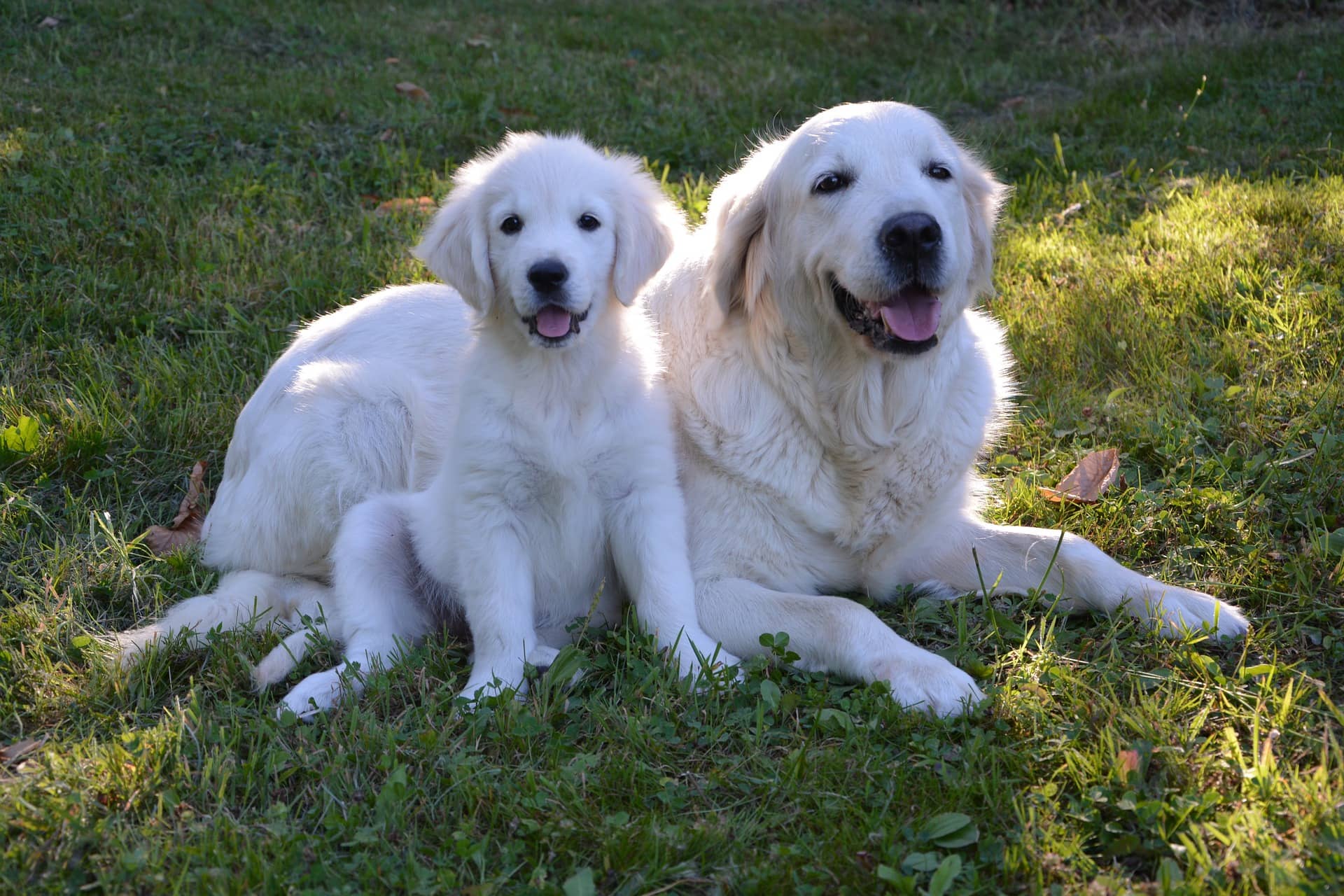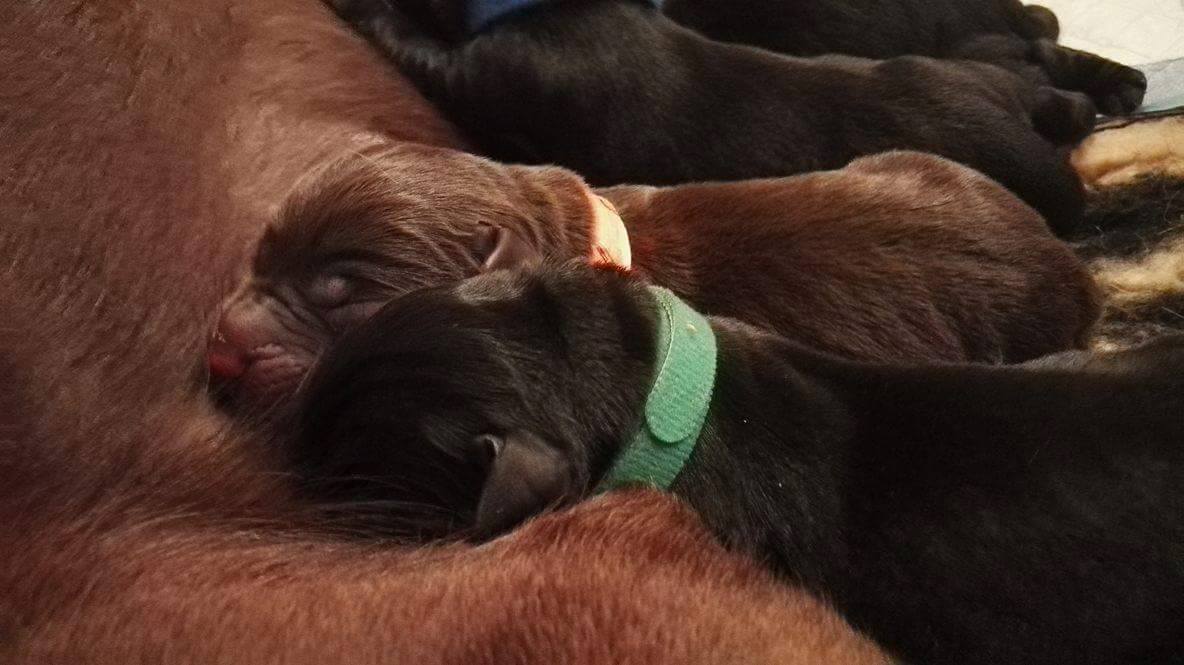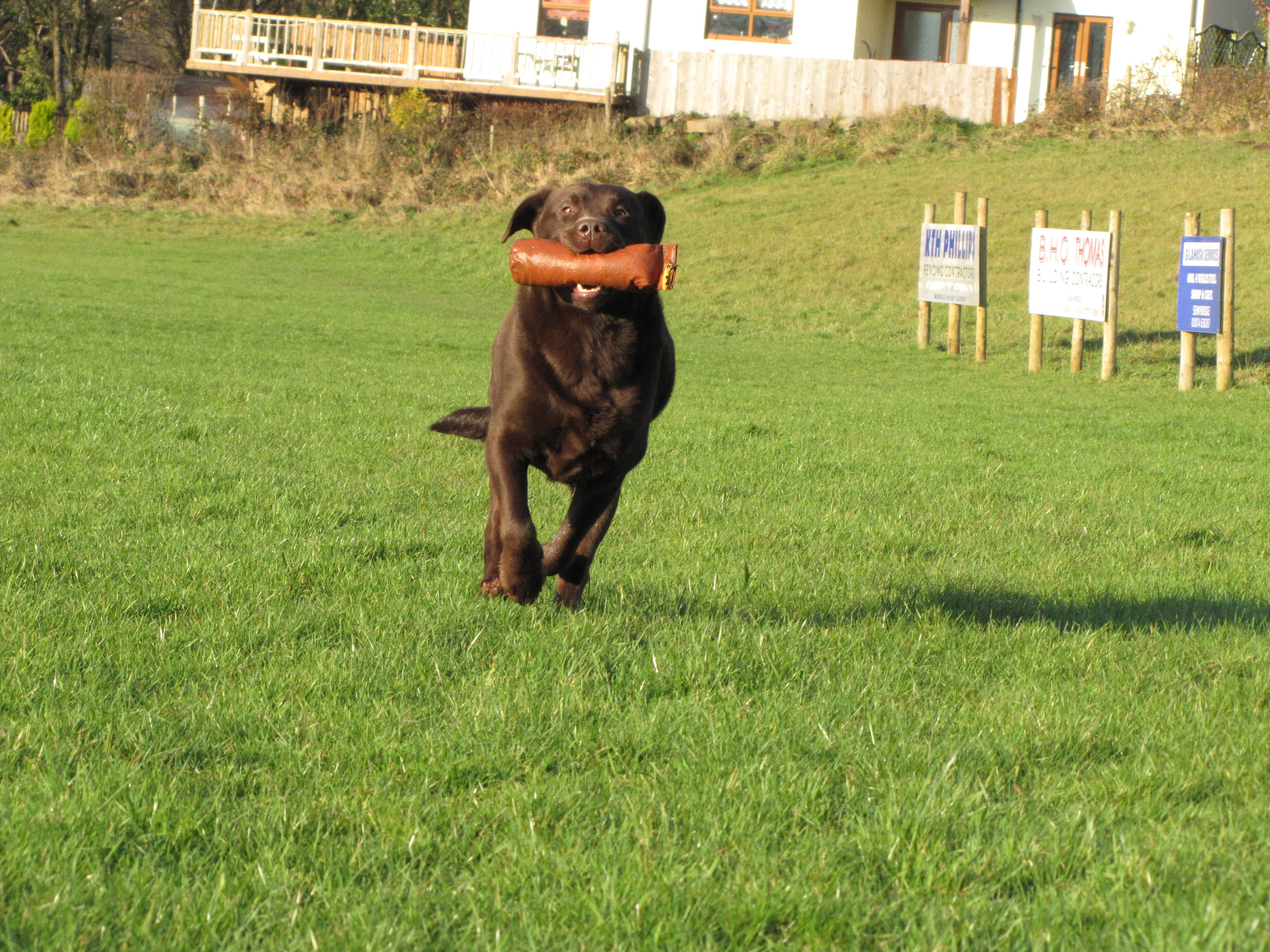Bringing a new puppy into the home can be a very exciting time, but it is vital that you make the right decisions when it comes to choosing a puppy breeder, litter and individual puppy to give you the best chance of having a happy, healthy companion.
We have all heard the stories of ‘puppy farm’ puppies that sometimes don’t make it past their first birthday due to the health issues that they develop. But, if you follow these tips and find yourself a breeder that truly cares about the health and welfare of each and every puppy they breed, there is no reason to be concerned about this. Whether you’re looking for a loving family companion or a working dog for a farm, choosing the right breeder is vital, and here is how you can make the right decision:
1. Health Testing is key
Most breeds of dogs are genetically predisposed to certain conditions and genetic diseases. Do your research and find out what tests are applicable to the breed or breeds you are looking at. Even if you are looking at a crossbreed dog, it is still possible for health tests to be conducted on the parents. More information about health testing and a list of health tests available for each breed can be found on the Kennel Club website: https://www.thekennelclub.org.uk/health/.
Ask breeders for the results but also ensure you ask for proof of these results e.g. documentation. If you have the kennel club registered name of the dogs, the result can also be checked through https://mykc.org.uk/. A reputable breeder will not be offended by you asking to see testing certificates and many will often include copies of these in puppy packs that they send home with each pup.
Many people are often told that health tests have not been completed because crossbreeds are healthier. Crossbreed dogs are not necessarily healthier than their purebred counterparts and can be susceptible to the genetic conditions of both parents. If the parents of a litter are health tested, it is likely that the puppies will be healthier than those from non-tested parents but there is no guarantee of this! It is vital that you do your research on appropriate health tests and the acceptable results of these tests as well. Just because a dog is hip scored, it doesn’t mean that the hip score is a good or acceptable one. Make sure to double-check the results of all health testing for your peace of mind.
2. Never buy a puppy without being able to view the mother
Many sites advise you to walk away from a litter if you are unable to see both parents. In reality, it is very rare that you will be able to see the sire to a litter. Reputable breeders will often travel the length and breadth of the country to find a stud dog that compliments their bitch and adds to their breeding program what they want. However, if you are willing to travel, the stud owner will often be happy to let you visit the stud dog. The breeder will likely be very happy to provide you with the Kennel Club name of the stud dog (if the dog is registered) and contact details for the owners. If the breeder is not willing to provide you with this information, this could be a cause for concern.
If the breeder gives you excuses as to why you can’t view the mother to the litter – walk away! Ensure that you see the mother with the litter as well. The mother may not want to feed or interact with the puppies a great deal but if the mother appears to be nervous or scared of the puppies, this should make you question whether she is the mother to the litter. The mother may look a bit skinny and may be losing some hair – this is normal for a bitch rearing a litter. However, do be concerned if the mother looks visibly unwell, matted or in otherwise poor condition.
If you feel that all is well with the parents of the pups then make note of the appearance, size, temperament and health of the mother as it is likely that your puppy will have many similar traits! If the breeder is established and has been breeding for a longer period, it is likely that they will have relations other than the mother of the puppies on the property. They are often happy for you to meet these dogs. You should definitely take this opportunity as it will give you a good indication as to what to expect from your puppy as a grown-up.

3. Visit the property and view the facilities where the puppies were born and raised before choosing a puppy breeder
Assess the facilities. The majority of kennels and homes with lots of dogs will have a ‘doggy’ smell. This is totally normal! However, an accumulation of faeces or urine (which will give a strong ammonia smell) is not normal. Take in the sights and smells when you visit a property.
Visually check:
- Does the kennel or housing area for the dogs look well lit and ventilated?
- Is the property secure?
- Do the dogs look well cared for and happy?
- Is the space large enough for the number of dogs being housed?
Do not be overly concerned if the dogs that are in the kennel are barking at you – this can often be normal excited behaviour for dogs. However, do be concerned if this barking includes growling or the baring of teeth. There may be a reason that these dogs are locked in kennels and it is not always a good reason!
Puppies are messy and before they are house trained, it is a lot of work to clean up after puppies. It is likely that there will be some evidence in the puppy pen or kennel where the puppies are being kept. However, the puppies should be clean! Check that where the puppies are being housed is a fairly ‘high traffic’ area. Puppies raised away from the hustle and bustle of normal life will often have missed out on vital socialisation during this initial period and may grow up to be more fearful adults.
4. See the whole litter!
If the litter you are viewing are less than 8 weeks old, alarm bells should be ringing if the breeder won’t allow you to see the whole litter together. It is the law that puppies are not allowed to be sold until they are 8 weeks old. If the breeder is bringing a single puppy into the room to meet you rather than letting you see the whole litter – you need to wonder why!
Even if you are looking at a particular pup, make sure to glance over the whole litter. The pups should all be clean and of a fairly even size, Eyes should be bright and clean, ears should be clean, noses should be clean and fairly dry and coats should be shiny and clean. If the pups appear to be lethargic, are dirty, or their eyes and coats look dull, it is likely that something is amiss! Try to arrange to see the puppies shortly before they are fed. Puppies will often sleep after being fed so this is not the best time to view them as you will not be able to see if any look to be having problems with walking or if any are lethargic in comparison to the other pups.
5. Is the breeder knowledgeable and willing to educate?
Is the breeder willing to answer your questions? A good breeder should be very knowledgeable about their breed and the care of dogs. Ask plenty of questions and make sure these answers are satisfactory to you.
A good breeder will be willing to talk about the health testing of their breeding stock, the show or working results or training that their stock have, as well as the general day to day life of their dogs.
Is the breeder willing to educate you? Many breeders will now provide a ‘puppy pack’ – a pack of written information that will give you advice on caring for your puppy. Where possible, try to read this before you take your puppy home so that you have plenty of opportunities to ask any questions you need to when you pick your puppy up – and the right breeder will be more than happy to answer any of these questions!
Does the breeder give you their contact information? A good breeder will give you a way to contact them in the event that you need to ask any questions at all and generally, they will be pleased when you do! All breeders love to hear how their pups are getting on so always touch base occasionally!
6. What are the dogs bred for? Does this fit what you are looking for?
Find out from the breeder what their intention was with the litter and consider your own circumstances. If you are looking for a calm family pet, buying a dog from working parents is generally not a good idea. You are likely to end up with a dog that is destructive when bored if it does not have a job to do. If you are looking for a working gundog or similar working dog, buying a dog from parents that are used for show purposes or that are family pets is also likely to not work out in the long run.
Breeders will often be straight for you and tell you the type of home that a particular puppy is suitable for. If you have a family with young children that may be noisy, a more timid puppy is not going to thrive in that environment where a more confident puppy would. Be honest with the breeder as to what it is you are looking for in a dog and they will work with you to find the dog that best fits your lifestyle.
7. View all documentation and contracts before choosing a puppy breeder
All reputable breeders will provide you with documentation and contracts when selling you a puppy. Before you even purchase a puppy, if the dogs are Kennel Club registered, ask to see the registration certificates! A breeder will be happy to show you these – although they will be unlikely to email you scanned copies, they will be happy to show you the original copy when you come to visit.
Many breeders will also produce a ‘Contract of Sale’ and ‘Endorsement Contract’ that new puppy owners are required to read and sign prior to taking their puppy home.
8. Does the breeder ask you lots of questions?!
When choosing a puppy breeder, be prepared to answer lots of questions about yourself and your lifestyle. Reputable breeders are genuinely interested in ensuring that their puppies are placed in quality, forever homes. Don’t be offended if the breeder asks whether you have a secure garden or what kind of dogs you had in the past and what happened to them. A serious breeder will want to know what kinds of situations their puppies will be subjected to and what kind of care they will receive. Some breeders may seem a bit hesitant to sell you a pup until they know a bit more about you.
Be prepared to answer questions relating to your lifestyle
The breeder may want to know about:
- Family- Do you have children or have plans to have children in the near future?
- Work life – What shifts do you work, How long is the dog going to be left alone during the day etc.?
- Your experience with dogs – How many have you owned, what breed etc.?
- Why you want that breed and what you intend to do with the dog
9. When will you be able to take the puppy home?
Many breeders like to hang on to their puppies beyond the eight-week mark when they will be ready to come home to you. While many breeders will have their own reasons for doing so, from a training perspective it is a good idea to have your puppy in the home as soon as possible when they are eight weeks old. This is because it’s a critical period in the development of your pup, and if you can start training during this time, you are far more likely to have a higher level of success. You should avoid having your puppy still living in the breeder’s home during this critical period if you can, in order to make training them into a happy, well-rounded adult dog.
10. Do your research! Do they have a website, social media etc? Can you talk to or see references from past puppy buyers?
In this age of technology, many breeders (yes, even the older ones!) maintain an internet presence. This may be in the form or a website, Facebook page or breeder profile on an advertising site (e.g www.champdogs.co.uk). Some breeders also maintain a Facebook group for puppy owners to share pictures of their dogs and ask questions. As a potential owner, many breeders will be happy to add you to these groups so you can meet current owners and see how it all works! Some breeders will also post references and testimonials from owners so have a good read of these.
Google the kennel name – see what comes up! If you are buying from a local breeder, ask around and see if anyone else has dogs from them and what their experience has been
11. Be prepared to wait for the right pup!

Many breeders will have waiting lists of homes for puppies long before the puppies are even conceived. If you find a breeder you like, it is likely that many others will also have liked them so you could be looking at 6 months to a year wait depending on their breeding plans. Get yourself on a waiting list well in advance and you may find that they have a puppy unexpectedly available sooner!
Many breeders also operate a system where if a family are no longer able to keep a puppy or dog that they have purchased, the dog is returned to the breeder so breeders will occasionally have slightly older puppies or adult dogs available to new homes. If these are potentially of interest to you, let the breeder know so they can contact you if one does come back to them. Choosing the right breeder is very important, and your new puppy will be worth the wait!
Most importantly, go with your gut! If something doesn’t feel right, it probably isn’t, so be prepared to walk away!
Want to know more about different dog breeds? Then just check out our blog! How about this post about Rottweilers?







very good artical
[…] If you are still searching for the perfect puppy to join your family check out our blog “Top 10 tips and considerations for choosing a breeder” […]